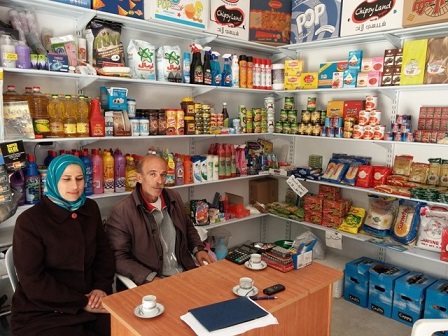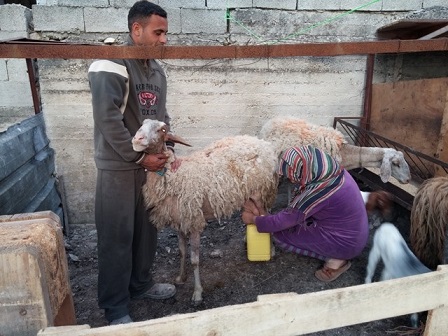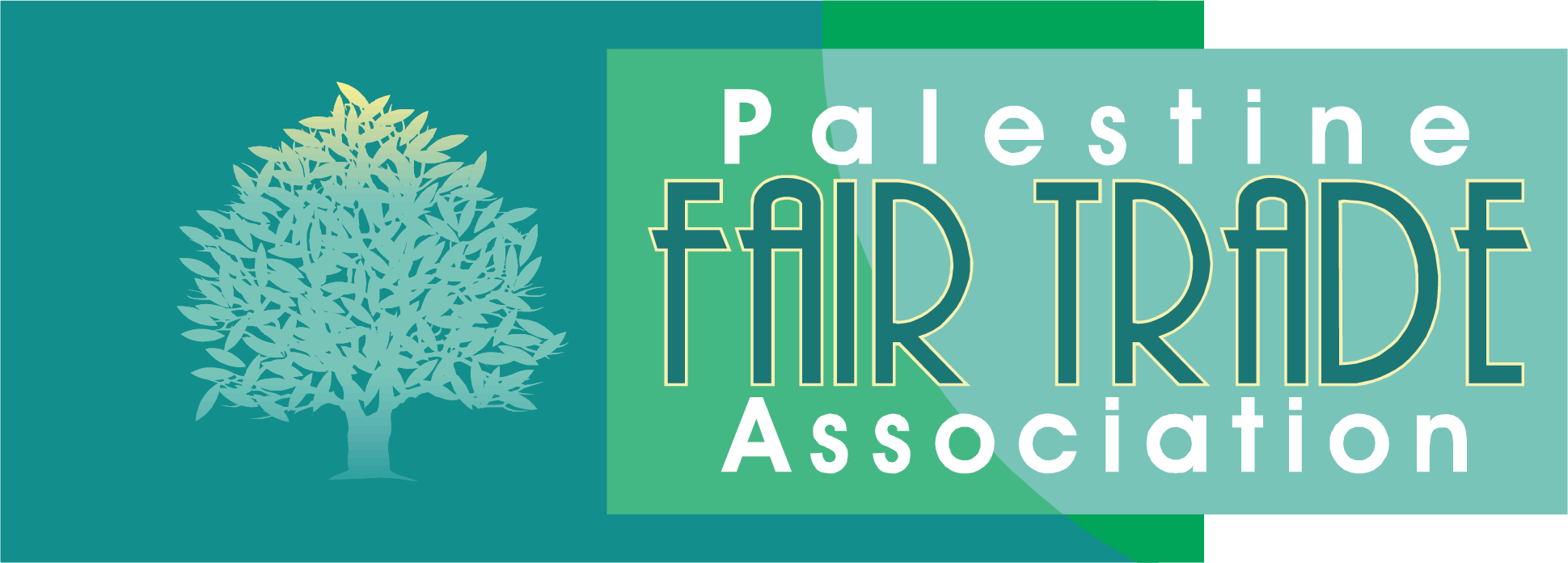Women Micro-Loans
The Palestine Fair Trade Association (PFTA) is committed to empowering women and other marginalized groups and building their capacities for civic participation through economic opportunities. The microloan project allows small producers, people few resources, especially women, to enter the workforce through small-scale entrepreneurship. The PFTA provides women with the capacity to produce and earn income, a market for their products, and increased social benefits through participation in cooperative and collective work.
In the past four years , 34 women have been approved and financed by the PFTA , as women receive their loans they start Implementing their projects, These stories illustrate the ways their lives have been changed.
NisreenJarar- the Burqin women’s cooperative
After she heard about the program through the local women’s cooperative coordinator, Nissreen directly contact and visit the PFTA office and apply for the program.
With her loan money, Nisreen bought new products for her shop. now Now her shelves are filled with a variety of products such as cereals, canned food, chips and snacks, cleaning and washing materials, dairy products, soft drinks and more ..
The daily profit divided into 2 parts: 35% saved to cover the shop requirements and the other part used for the daily needs of the family.
The PFTA advised Nisreen to include ice-cream as a new product for her mini market. This will be cost-effective since the freezer she needs will be provided free by the ice cream applier.
Nisreen will have good earnings, especially during the hot summer months, From time to time she visits the larger market to research new products that are in demand so she can add these to her shelves.

MontahaSabri – the Anza women’s cooperative
After she applied to the program and received funding from the PFTA, Muntaha bought five pregnant ewes. She also bought enough feed for their nutrition. It all totaled 12,000 NIS ($3,425US). The program offers 10,000 NIS; Montahacontributed 2,000 NIS.
The five ewes delivered five lambs. Thetwo male lambs were sold for 1,500 NIS ($425 US). Montaha kept the three females to increase the number of animals in her flock.
During the production season, the ewes produce enough milk each day to make nearly 2.5 kg of white cheese. Montaha sells the cheese in the village for 23 NIS ($6.5 US) per kilogram. She uses the income for animal feed and to pay university fees for her son.
After she applied to the program and received funding from the PFTA, Muntaha bought five pregnant ewes. She also bought enough feed for their nutrition. It all totaled 12,000 NIS ($3,425US). The program offers 10,000 NIS; Montahacontributed 2,000 NIS.
The five ewes delivered five lambs. Thetwo male lambs were sold for 1,500 NIS ($425 US). Montaha kept the three females to increase the number of animals in her flock.
During the production season, the ewes produce enough milk each day to make nearly 2.5 kg of white cheese. Montaha sells the cheese in the village for 23 NIS ($6.5 US) per kilogram. She uses the income for animal feed and to pay university fees for her son.

Somoud Barakat from Nesf jbeal women cooperative
Somoud’s project got underway after she graduated from the university. She raised sheep and goats and produced dairy products such as yogurt and white cheese. [Is this important? She married a policeman in the Palestinian Authority.] She and her husband both had the necessary experience and the space needed to build the barn.She applied to the microloans program and received financing from the PFTA. She prepared the barn for the animals and bought four pregnant ewes and 1000 kg of feed for their nutrition.
Somoud commented on the program: The loan was very helpful and the payment schedule is very manageable as there is no interest to pay.Somoudmilks her animals twice daily, once in the early morning and the other at sunset. The total daily yield is 7 kg of fresh milk which she processes to make 2.5 kg of white cheese. This she sells locally for 20 NIS per kilogram in the village.
Soumoud uses 50 percent of her income to provide concentrated feed for the animals and the rest for daily household needs.
She saves some money and plans to buy a new pregnant ewe to add to her flock. She will keep all the female lambs for milk production,when they are old enough. The males she will sell at six months old for meat.
Somoud said that she would choose the same project again because she has gained experience and a stable income. Demand for her dairy products is steady and she is able to market them locally in her village. These projects help a farmer to depend on herself, she said, and change people’s understanding that a successful project is one that is sustainable.
PFTA, all the farmers and the women’s groups send their sincere thanks to all supporters of the microloans program - especially Madonna, the Ray of Light Foundation, On the Ground, and the Land of Canaan Foundation - for helping us to complete and implement the microloans program.

